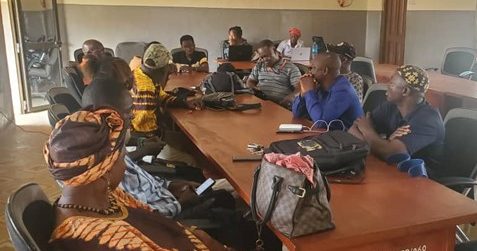
Communities mobilise and take health action in a Sierra Leone learning site
Communities play a pivotal role in bolstering health systems, a fact that became starkly apparent during Sierra Leone’s response to the Ebola epidemic. The global discourse has shifted to recognize communities not merely as recipients of healthcare services but as active participants in shaping health policies and programmes. This paradigm shift underscores the need for health systems to actively involve communities in decision-making processes and to integrate their insights into the design and implementation of health initiatives.
What problem is being addressed?
Despite the potential of local communities to contribute valuable resources to health systems and to drive health progress, an organizational-level disconnect can be observed in Sierra Leone. Facility-community committees, which are meant to serve as platforms for discussion and mobilization, often exist only in theory. In practice, they remain largely inactive, failing to harness community insights to address challenges, evaluate evidence, and spur collective action.
What did we do?
To bridge this gap, ReBUILD for Resilience researchers from the Institute for Development organised participatory workshops in Kailahun and Moyamba, bringing together community members and health system stakeholders. These workshops aimed to:
• Identify the power dynamics within communities regarding health-related actions.
• Determine the necessary steps to enhance community engagement in health decision making.
• Establish a continuous dialogue among stakeholders, including the health system, by using digital platforms like WhatsApp groups, ensuring swift communication on urgent matters and keeping all parties informed on community health issues. Representatives also coordinated regular in-person meetings with the support of the consortium and followed up on action points to maintain momentum and accountability.
Impact
The ReBUILD team has recently carried out an evaluation of this initiative. Stakeholders were largely positive about the endeavour and their activities, appreciating the collaborative platform and space it assured them to discuss community health challenges. Their collective efforts have led to tangible initiatives supported by the health system but reaching across sectors, such as:
• Partnering with the town council to strategically place large waste bins, particularly in the main market area, significantly improving sanitation and cleanliness.
• Assisting the District Health Management Team (DHMT) in community health campaigns, exemplified by their support of a malaria bed net distribution effort that achieved a 95% success rate.
The evaluation also noted more intangible benefits which are nevertheless important. A trend towards sustainable health initiatives is emerging, fuelled by increased local engagement and ownership of health projects. Communities are progressively taking charge of sustaining health improvements, with local stakeholders committing their time and resources towards maintaining actions.
Community members are becoming increasingly cognizant of the importance of collaboration with a broad spectrum of stakeholders, including the formal health system. Recognizing that successful health outcomes often result from comprehensive collaborations, they are more inclined to interact with various levels of governance and health agencies, fostering a more integrated approach to health care. The DHMT is an important part of the stakeholder group that is routinely meeting and has ensured that dedicated staff are available to attend and support meetings and actions.
Further information
- Find more on this study and its outputs here.
- There are other ReBUILD for Resilience case studies here
Image: Stakeholders from the local community discuss health challenges and potential solutions during a meeting in Kailahun in Sierra Leone